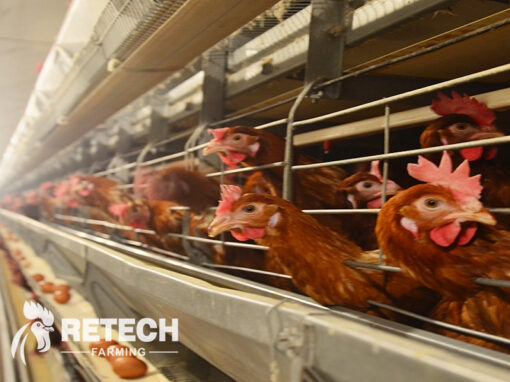Most chicken farmers will attach great importance to the management of chicken flocks during the day and ignore the management of chicken flocks at night. In fact, night management is also very important.
In many cases, nighttime observations of flocks are easier to spot. Do a good job in night management, adjust in time, and avoid the impact of unnecessary factors on chickens as much as possible, in order to reduce the occurrence of chicken diseases.
The management of chickens at night in the chicken farm is mainly reflected in the following aspects:
The sound of chickens
Stand in the coop and listen to the sound of the flock. If a flock develops respiratory disease, listening to sounds at night can detect respiratory problems early and take measures to prevent large flocks from getting sick. It is the best time to listen to the respiratory tract of chickens for abnormalities at night. In addition, if there are mice, cats or birds stealing materials or activities in the chicken house, according to the abnormal sound, the abnormal situation can also be found, and the remedy can be stopped in time to avoid the spread of foreign pathogenic microorganisms.
Chicken Farm
When patrolling the chicken house at night, pay attention to observe the distribution of the chicken flocks, observe the chicken flocks to see if the chicken flocks are clustered, whether there is robbery in the chicken farm at night, and the air flow speed of the chicken house at night, etc. Make adjustments in time to avoid the temperature of the chicken house being too low. In addition, the chickens eat less food at night and have less activity, which produces less heat. Under the influence of two factors, it is easy to catch a cold. Here, you should pay attention to the wind speed and temperature at the same height as the chicken, so as to avoid the wind blowing directly to the chicken body.
Drinking water
After the chicken house is turned off, the sight of the chickens will be affected, and they drink very little water at night. Pay attention to observe whether the water level of the water tank has dropped. If there is a drop, it may be the water line leaking. At this time, you must check whether the water line is leaking and improve it in time, otherwise If the leaking place is not found in time, it is easy to cause the ground of the chicken house to be wet and the humidity is high, causing the chickens to have diarrhea, diarrhea, colds and other phenomena.
Air quality
After entering the chicken farm at night, stand in different positions to feel the air quality of the chicken house. Reduce the exhaust gas in the chicken house and ensure the air quality of the chicken farm.
Weather changes
The weather changes at night are the most frequent time, which has a great impact on the chicken flock. In the early hours of the night, when people are prone to sleepiness, you can check the accurate weather forecast in advance, and keep abreast of weather conditions such as wind and rain, and respond in advance. Avoid the effects of weather stress on the flock.
In short, raising chickens is a meticulous job. In order to raise chickens well, the usual detailed management is very important. Only by constantly improving the management loopholes and creating a comfortable growth environment for the chickens can the breeding benefits be maximized.


